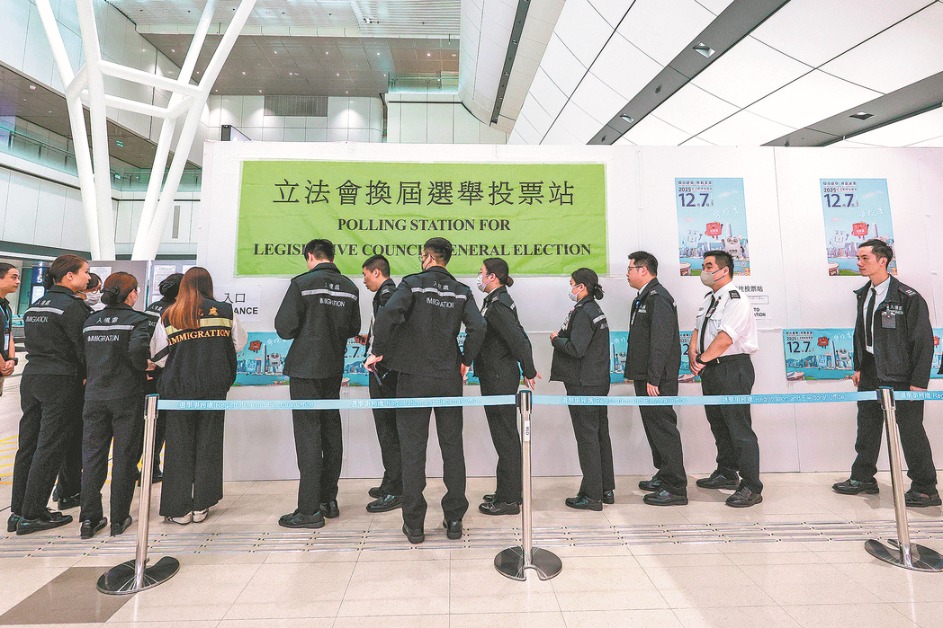A trove of learning and opportunities
By Cao Chen in Shanghai | China Daily | Updated: 2019-05-01 11:35
Back then, the children of migrant workers were still not allowed in public schools in the city. Furthermore, most of the private schools that their parents could afford to send them to were poor in quality.
"Some of these schools that the children of migrant workers could attend did not even have blackboards, not to mention libraries, computers and qualified teachers," said Zhang.
As such, he set his mind on helping these underprivileged children by establishing a center to provide them with extracurricular education that they would otherwise have no access to compared to children from normal schools.
He founded his center in 2006 and the first batch of 40 pupils came from local primary schools that catered to the children of migrant workers. Back then, the center had just four volunteer teachers who taught arts and English. Today, the center has more than 40 volunteer teachers. It also offers a wider variety of modules, covering arts and music, literature, science and practical skills. Summer and winter camps are also held every year.

Since 2010, all children of migrant workers are allowed to attend public schools for free compulsory education in Shanghai. The center, which used to focus on providing extracurricular education for students before senior high school, has expanded its reach to include those who need better senior high education, not only in Shanghai but also in less developed provinces. There are currently five volunteer centers across the country - three in Shanghai, one in Yunnan province and one in Anhui province.
"We do not give compassion or charity to these children, but provide real care and education to inspire the next generation to obtain knowledge, learn technology and create ideas in Jiuqian," said Zhang. "And this goal demands further support from the public and the government."
There is no graduation at the center. Zhang said that students are welcome to join and leave whenever they want. There are no examinations either. Unlike mainstream schools, being exam or book smart is not the objective here. Rather, the focus is on expanding one's knowledge of the world through practical experiences.
"We enlighten young minds and encourage our students to set goals, discover the fun of learning and their gifts, and make career choices through our colorful programs," said Zhang. "The courses and activities we offer will contribute to a quality, holistic education that is beneficial to the development of a child's personality, communication skills and creativity."
Since its inception, the center has been providing free education for about 550 children every year, said Zhang.
In a testament to the effectiveness of its education methods, 10 students from the school have gained admission to the United World Colleges on full scholarship. Six of these students had pursued higher education at universities in the United States or Canada after graduating from college. Founded in 1962 the pioneering German educationalist Kurt Hahn, UWC is a global movement that brings deliberately diverse students from around the world to study together. The educational institute's 17 schools and colleges on four continents recruit young people based on personal motivation and potential, regardless of any social, economic or cultural factors, through a scholarship program.
Fu Kai, a child of migrant workers in Shanghai, chose to join Jiuqian instead of going to a vocational high school after he graduated from junior high school. He said he has no regrets with his decision.
"Attending vocational school means having to learn one specific skill before entering the job market," said the 15-year-old, who is presently learning English and plans to apply to UWC for further study.
"I decided that it would be more enriching to do this program and be exposed to more experiences and possibilities in life."
Li Siqiang, a 15-year-old from Anhui province, shared the similar sentiment. He is also learning English, a language he said is essential for him to become a software engineer in the future.
"I have become more patient and am able to think more critically after attending this program. The program has shown me a world of possibilities," he said.
Last year, Huang decided to pay it forward by working as a volunteer teacher at Longlin Primary School in Dai autonomous prefecture in Xishuangbanna, located in southwest China's Yunnan province. There, she taught children how to identify insects and plants, as well as how to draw pictures of the different species. She said that she plans to become a teacher in the future.
"I believe that this program is like a lamp that has brought the light into my dark and gloomy life. It has not let me down. The program has given me a fulfilling school life, and I thoroughly enjoy it," she said.
























